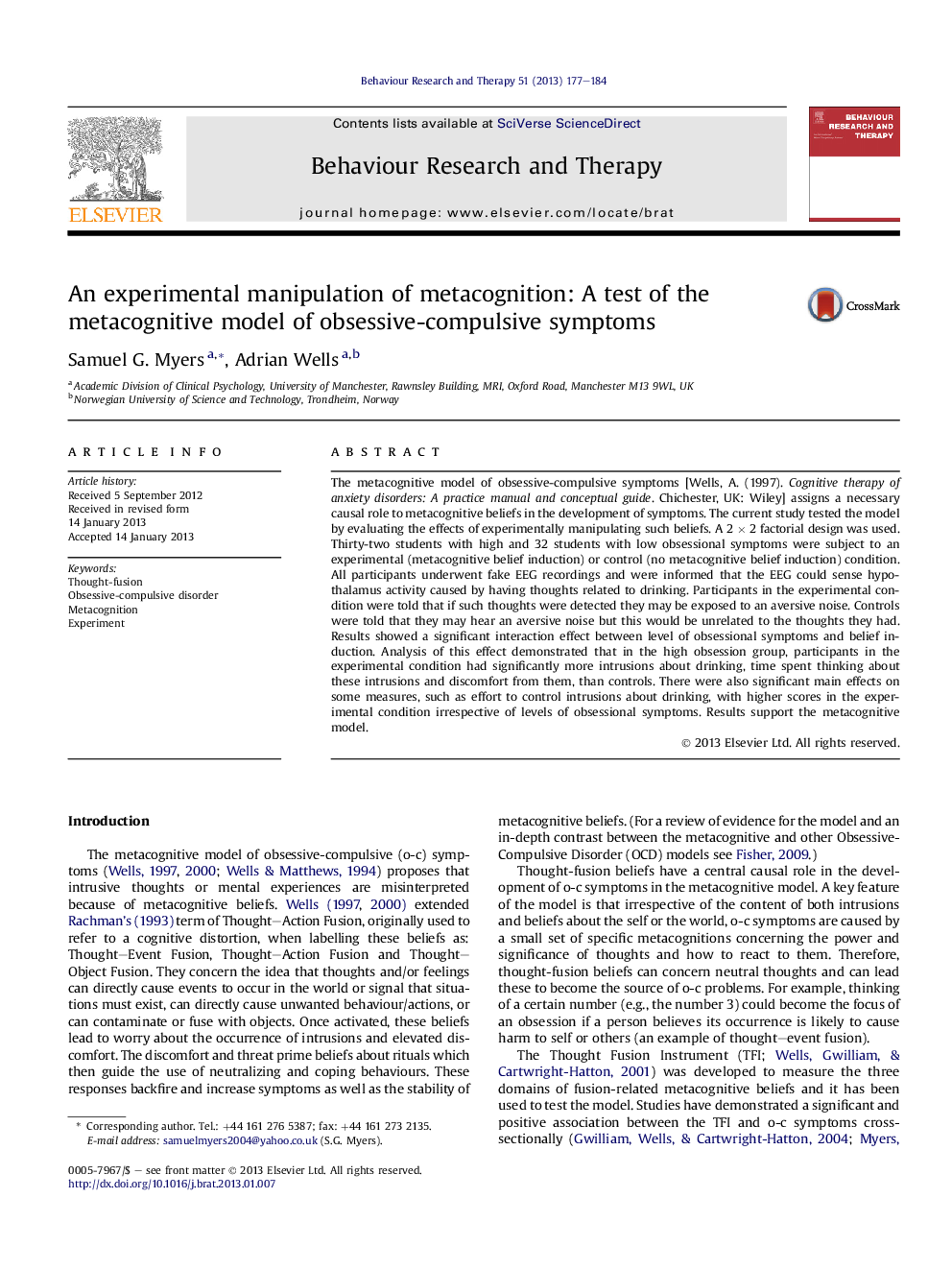| کد مقاله | کد نشریه | سال انتشار | مقاله انگلیسی | نسخه تمام متن |
|---|---|---|---|---|
| 901914 | 1472798 | 2013 | 8 صفحه PDF | دانلود رایگان |

The metacognitive model of obsessive-compulsive symptoms [Wells, A. (1997). Cognitive therapy of anxiety disorders: A practice manual and conceptual guide. Chichester, UK: Wiley] assigns a necessary causal role to metacognitive beliefs in the development of symptoms. The current study tested the model by evaluating the effects of experimentally manipulating such beliefs. A 2 × 2 factorial design was used. Thirty-two students with high and 32 students with low obsessional symptoms were subject to an experimental (metacognitive belief induction) or control (no metacognitive belief induction) condition. All participants underwent fake EEG recordings and were informed that the EEG could sense hypothalamus activity caused by having thoughts related to drinking. Participants in the experimental condition were told that if such thoughts were detected they may be exposed to an aversive noise. Controls were told that they may hear an aversive noise but this would be unrelated to the thoughts they had. Results showed a significant interaction effect between level of obsessional symptoms and belief induction. Analysis of this effect demonstrated that in the high obsession group, participants in the experimental condition had significantly more intrusions about drinking, time spent thinking about these intrusions and discomfort from them, than controls. There were also significant main effects on some measures, such as effort to control intrusions about drinking, with higher scores in the experimental condition irrespective of levels of obsessional symptoms. Results support the metacognitive model.
► High and low obsession symptom groups were subject to a metacognitive beliefs manipulation.
► Participants in the experimental condition were led to believe that certain thoughts would cause a negative outcome.
► They reported more obsessive-compulsive like symptoms related to the target thoughts than controls.
► Effects were most pronounced in high obsession prone participants.
► Results support the metacognitive model of obsessive-compulsive symptoms.
Journal: Behaviour Research and Therapy - Volume 51, Issues 4–5, May 2013, Pages 177–184